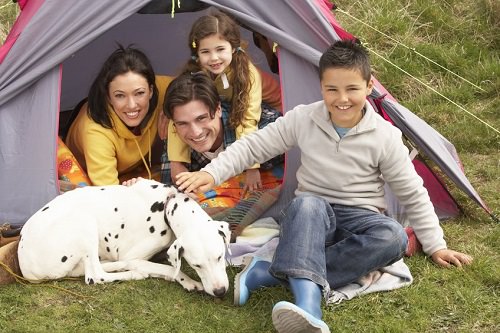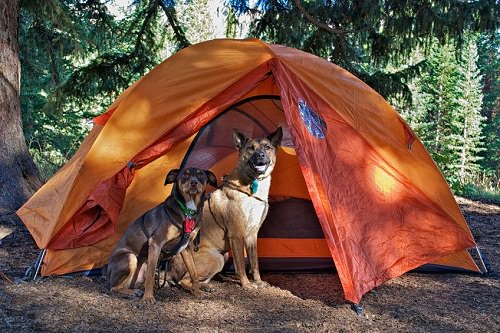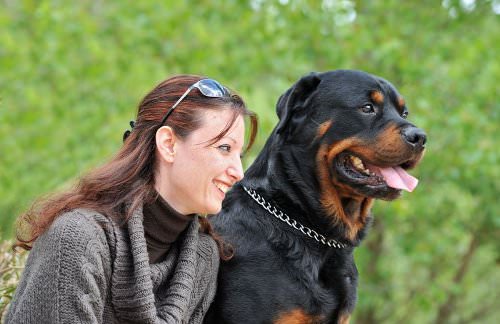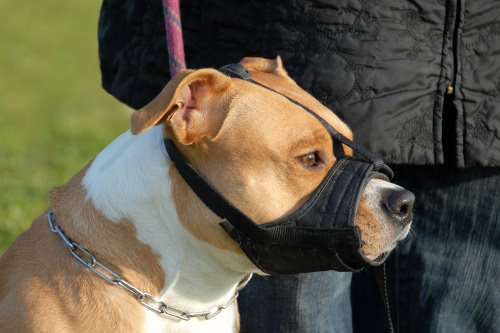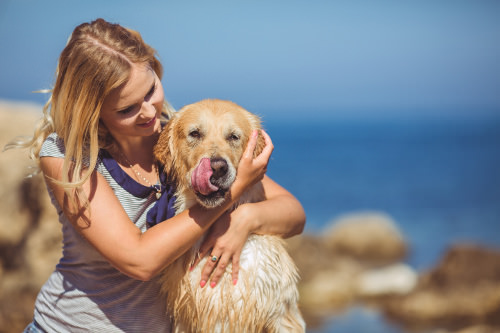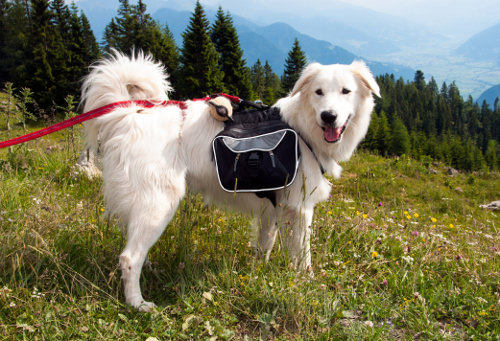Having to leave pets behind when going on holiday is a traumatic experience for both the owner and the animal in question. Finding a responsible person to look after the pet can sometimes be a challenge. One option is to leave your pet with a boarding kennel but this can be expensive if you are away for several weeks. Boarding kennels are also stressful environments for pets. Therefore, bringing your cat or dog on holiday with you is the best option for both of you. Camping holidays are ideal for those travelling with animals as many camp sites will accept four-legged campers. Here are a few helpful tips for camping with your pet.
1. Call Ahead
Always call ahead and check that the campsite will accept your pet on the premises. Some campsites will only allow dogs up to a certain weight, whereas others may not accept pets at all. There may also be restrictions on the number of animals allowed into the campsite at one time, so make sure you call and make your reservation as soon as possible.
2. Ensure Your Pet’s Vaccination Card Is Up to Date
Some campsites may require you to present an up-to-date vaccination card before you can bring your pet onto the site. This is for the safety of your animal and any others that may be staying on the site. As well as vaccinations, it is advisable to treat your pet for ticks, worms and fleas before travelling.
Read also – 9 Helpful Tips for Choosing a Pet Sitter
3. Ensure Your Pet’s ID and Microchip is Up to Date
Make sure your pet has an ID tag fitted onto their collar with your name, address and current mobile number on it. It is also advisable to get your pet a microchip if it does not already have one. This will allow you to locate your pet more easily if it gets lost without its collar or ID.
4. Bring a Travel Crate or Your Pet’s Regular Bed
If your pet will be sleeping in your tent or camper with you, then make sure you bring a bed or a familiar blanket. This will help your pet to feel more comfortable and secure in the new environment. If your pet will be staying outside, make sure you bring a travel crate or kennel that will provide shelter in the event of bad weather.
Read also – 9 Items of Home Decor for Pets
5. Pack a First Aid Kit
Like us, our pets can occasionally get into difficulty. Visit your local veterinarian or pet store before you travel to stock-up on antiseptic wipes, a soothing lotion for skin irritation and anti-travel sickness medication. Make sure you pack a good supply of bandages and a pair of tweezers for removing splinters or stones from tiny paws.
6. Bring Some Extra Toys
Occasionally, your pets may need to entertain themselves whilst you are performing certain tasks. Kong toys are ideal for dogs as you can fill the toy with treats that will keep your pet happy for hours. If you have to leave your cat alone for a short period, bring its favorite toy or a new one that contains catnip.
Read also – 8 Ways to Organize Your Pet
7. Purchase an Extra Long Lead and Anchor
If your dog is particularly large or hyperactive, there may be certain times when it has to be tethered. Purchase a long chain or leash from a pet store and an anchor that can be inserted into the ground such as a large metal coil. This will provide your dog with more freedom than its regular lead.
8. Pack a Muzzle
Even if your dog is not dangerous, it is still advisable to purchase a muzzle and familiarize your dog with it before travelling. Certain countries such as Greece require pets to be muzzled before you can take them onto public transport. You might also need to muzzle your dog in public spaces.
Read also – 10 Most Popular Dog Names
9. Bring Plenty of Plastic Sacks and Wet Wipes
Never leave home without an adequate supply of plastic bags for cleaning up after your pet as some towns impose heavy fines for those who don’t. Packing baby wipes is also advisable as you can use them to clean hard surfaces and your pet if it becomes dirty.
10. Purchase a Pet Rucksack for Hiking Trips
If you plan on doing some hiking on your trip, purchase a pet rucksack for your dog. Carrying heavy items such as food and water can be exhausting when hiking uphill, so a pet rucksack will allow your dog to carry some of its own supplies. Make sure the bag is not too heavy even if your dog is extremely strong. Your pet’s skin is not used to the friction caused by bag straps and will easily become irritated.
Many campsites are happy to welcome well-behaved pets. A few may even offer a sitting service or provide separate exercise areas so dogs can run-off any pent-up energy. Animals love camping holidays and may even get the chance to socialize with other animals staying at the same site. Packing the aforementioned items will ensure you are prepared for any unexpected circumstances that may arise and will ensure an enjoyable holiday for both you and your pet.

